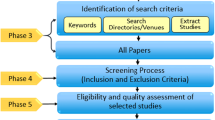Abstract
In this paper we present Fuzzy Cognitive Maps, a well established decision making technique that combines Artificial Neural Networks and Fuzzy Logic, for making decisions regarding Container Transport Logistics. A Fuzzy Cognitive Map is created based on the knowledge extracted by a domain expert. Based on this knowledge, a model of the interactions and causal relations among various key Logistics factors is created. The evolution of this Fuzzy Cognitive Map, imitates the cognitive processes of a decision maker during reasoning. Having the FCM created, it is examined both statically and dynamically. A number of scenarios are introduced and the decision making capabilities of the technique are presented by simulating these scenarios and finding the predicted outcomes according to the evolution of the FCM model and the expert’s knowledge. FCM’s predicted consequences of specific decisions can be valuable to decision makers since they can test their decisions and proceed with them only if the results are desirable.










Similar content being viewed by others
References
Ahmadi S, Forouzideh N, Alizadeh S, Papageorgiou E (2015) Learning fuzzy cognitive maps using imperialist competitive algorithm. Neural Comput Appl 26(6):1333–1354
Angeloudis P, Greco L, Bell M (2015) Strategic maritime container transport design in oligopolistic markets. Transp Res Proced 9:269–282 (ISSN 2352-1465)
Axelrod R (1976) Structure of decision. The cognitive maps of political elites. Princeton University Press, Princeton
Buchanan BG, Shortliffe EH (1984) Rule-based expert systems. The MYCIN experiments of the Stanford heuristic programming project. Addison-Wesley, Reading
Ebeling CE (2009) Evolution of a box. Invent Technol 23(4):8–9 (ISSN 8756-7296)
Gkonis K, Psaraftis H (2010) Container transportation as an interdependent security problem. J Transp Secur 3(4):197–211
Glykas M (ed) (2010) Fuzzy cognitive maps—advances in theory, methodologies, tools and applications. Studies in fuzziness and soft computing, vol 247. Springer, Berlin, Heidelberg
Hart JA (1977) Cognitive maps of three Latin American policy makers. World Polit 30:115–140
Hsu W-KK (2013) Improving the service operations of container terminals. Int J Logist Manag 24(1):101–116
Khan MS, Quaddus M (2004) Group decision support using fuzzy cognitive maps for causal reasoning. Group Decis Negot 13:463–480
Khan MS, Chong A, Gedeon T (2000) A methodology for developing adaptive fuzzy cognitive maps for decision support. J Adv Comput Intell 4(6):403–407
Kim MC, Kim CO, Hong SR, Kwon IH (2008) Forward–backward analysis of RFID-enabled supply chain using fuzzy cognitive map and genetic algorithm. Expert Syst Appl 35(3):1166–1176
Kosko B (1986) Fuzzy cognitive maps. Int J Man-Mach Stud 24:65–75
Kosko B (1992) Neural networks and fuzzy systems. Prentice-Hall, Inc., Upper Saddle River. http://dl.acm.org/citation.cfm?id=129386
Levinson M (2006) The box: how the shipping container made the world smaller and the world economy bigger. Princeton University Press, Princeton, New Jersey, USA. ISBN 0-691-12324-1
Li G, Peng Q (2011) The development of the material management system based on ontology and fuzzy cognitive map. Adv Intell Soft Comput 106:431–436
Meisel F (2009) Seaside operations planning in container terminals. Contributions to management science. Physica-Verlag Heidelberg. doi:10.1007/978-3-7908-2191-8
Motlagh O, Jamaludin Z, Tang SH, Khaksar W (2015) An agile FCM for real-time modeling of dynamic and real-life systems. Evol Syst 6(3):153–165
Nasir S (2014) Intermodal container transport logistics to and from Malaysian ports—evaluation of customer requirements and environmental effects. Doctoral Thesis in Transport Science, Royal Institute of Technology (KTH), School of Architecture and the Built Environment, Division of Transport and Logistics, Stockholm
Nossack J, Pesch E (2013) A truck scheduling problem arising in intermodal container transportation. Eur J Oper Res 230(3):666–680 (ISSN 0377-2217)
Papageorgiou E (2012) Fuzzy Cognitive Map software tool for treatment management of uncomplicated Urinary Tract Infection. Comput Methods Programs Biomed 105(3):233–245
Papageorgiou E (2013) Review study on fuzzy cognitive maps and their applications during the last decade. In: Glykas M (ed) Business process management. Studies in computational intelligence, vol 444. Springer, Berlin, Heidelberg, pp 281–298
Papageorgiou E (ed) (2014) Fuzzy cognitive maps for applied sciences and engineering—from fundamentals to extensions and learning algorithms. Intelligent Systems Reference Library, vol 54. Springer, Berlin, Heidelberg
Roberts FR (1976) Strategy for the energy crisis: the case of commuter transportation policy. In: Axelrod R (ed) Structure of decision. Princeton University Press, Princeton, pp 142–179
Rose G (2013) Ninety percent of everything: inside shipping, the invisible industry that puts clothes on your back, gas in your car, and food on your plate. Metropolitan Books/Henry Holt and Co, New York
Rozic T, Petrovic M, Ogrizovic D (2014) Container transport flows as a prerequisite for determination of inland terminal location. Sci J Marit Res 28:3–9
Shi X, Tao D, Vob S (2011) RFID technology and its application to port-based container logistics. J Organ Comput Electron Commer 21(4):332–347
Stach W, Kurgan L, Pedrycz W, Reformat M (2005) Genetic learning of fuzzy cognitive maps. Fuzzy Sets Syst 153(3):371–401
Taber R, Yager RR, Helgason CM (2006) Quantization effects on the equilibrium behavior of combined fuzzy cognitive maps. Int J Intell Syst 22(2):181–202
Ting SL, Wang LX, Ip WH (2012) A study of RFID adoption for vehicle tracking in a container terminal. J Ind Eng Manag 5(1):22–52
Trappey AJC, Trappey CV, Wu C-R, Hsu F-C (2009) Using fuzzy cognitive map for evaluation of RFID-based reverse logistics services. In: Proceedings of the 2009 IEEE international conference on systems, man, and cybernetics, pp 1510–1515
Trappey AJC, Trappey CV, Wu C (2010) Genetic algorithm dynamic performance evaluation for RFID reverse logistic management. Expert Syst Appl 37(11):7329–7335
Tsadiras ΑΚ (2008) Comparing the inference capabilities of binary, trivalent and sigmoid fuzzy cognitive maps. Inf Sci 178(20):3880–3894
Tsadiras Α, Bassiliades N (2013) RuleML representation and simulation of fuzzy cognitive maps. Expert Syst Appl 40:1413–1426
Tsadiras AK, Margaritis KG (1996) Using certainty neurons in fuzzy cognitive maps. Neural Netw World 6:719–728
Tsadiras ΑΚ, Margaritis KG (1997) Cognitive mapping and certainty neuron fuzzy cognitive maps. Inf Sci 101:109–130
Wang R, Zhao X, Yu W, Zou W (2008) The study on empty containers allocation in the container transportation. In: IEEE international conference on industrial engineering and engineering management, 2008. IEEM 2008. Singapore, pp 1678–1683
Acknowledgments
The research of Athanasios Tsadiras has been co-financed by the European Union (European Social Fund—ESF) and Greek national funds through the Operational Program “Education and Lifelong Learning” of the National Strategic Reference Framework (NSRF)—Research Funding Program: Thales. Investing in knowledge society through the European Social Fund.
Author information
Authors and Affiliations
Corresponding author
Rights and permissions
About this article
Cite this article
Tsadiras, A., Zitopoulos, G. Fuzzy cognitive maps as a decision support tool for container transport logistics. Evolving Systems 8, 19–33 (2017). https://doi.org/10.1007/s12530-016-9161-9
Received:
Accepted:
Published:
Issue Date:
DOI: https://doi.org/10.1007/s12530-016-9161-9




